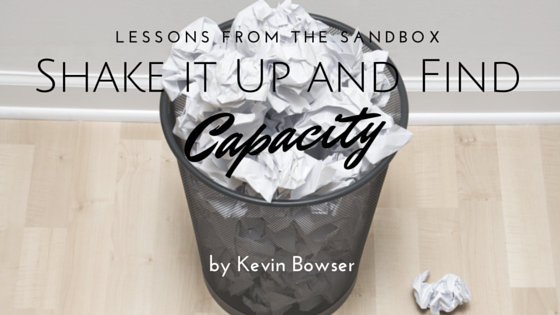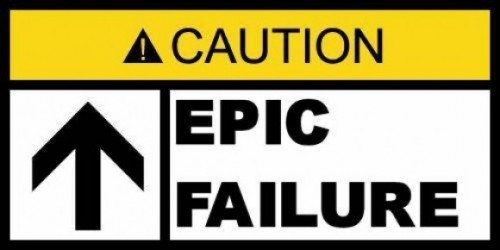I don’t know about you, but every so often, I start to feel a lack of enthusiasm for my leadership roles. I simply lose that spark of excitement in the midst of life’s craziest of times. I just feel, well, dry. It’s as if the stream of excitement that started flowing when I began this journey has not had enough rain to sustain it. Leadership then becomes a habit, a thing I do instead of a part of my life I purposefully invest in.

I’m guessing you can relate.
So, here’s what I’ve decided:
Sometimes when the enthusiasm has run dry it is a sign that the time has come to move on. Maybe it is someone else’s turn to step up and lead. Maybe you are filling shoes that are no longer meant for you to fill. It could be that it is time for God to empower someone else`s leadership in this area. Even if no one seems to be gunning for the job, I would encourage you not to continue in a place you don’t feel lead to lead. Seek council, pray intently, and leave if the answer is go.

Or perhaps you just need a break. We’re all human, we all need a vacation from time to time. Similarly, our leadership roles must also be carefully attended to. In fact, it`s not healthy for your leadership, those in whom you lead or your very person to constantly be on the go. So maybe the answer is: you need a chance for some distance to gain perspective. Now, a break from your leadership as an executive would look much different than a break from mine, as full-time mommy, but regardless of the logistics, maybe the answer is time away for renewal.
Maybe it`s time to get creative. There was a time in my life that I prayed and prayed for direction. I thought in order to truly be effective, I needed to be removed from my position. However, God’s answer was the exact opposite: I needed to grow in the midst of the uncertain relationship. In fact, I still am nearly ten years later. Sometimes, we don’t need to quit, sometimes we don’t even need a break, we just need a bit of creativity in the middle of it. So, how do we recharge, re-excite, and re-motivate ourselves to move forward from our stagnant place?

Evaluate the tools. What tools do you have at your fingertips that can help your leadership? Maybe there are some that need to be disposed of, others that need adopted. If you are really in need of some redirection, let me challenge you to evaluate every tool. Don’t simply go along with what has worked, but figure out what is the best for your leadership and take advantage of those tools. Find something new! Reach out to others and build relationships in the field (heaven-forbid, network!) to see what is working for them.
Adopt new strategies, to approach your leadership. Jump out of your comfort zone of the mundane and attempt to approach leadership differently. Maybe it is your morning routine, or your afternoon schedule that needs to be shaken up a bit. Maybe it is the way your prioritize your to-do list, or maybe it is as simple as adding your favorite aspect of leadership into your daily routine. Whatever it is, see if a bit of variety works for you. If not, all well! You now know that one has been tried and you can move on to something else.
Finally, reevaluate your goals. Revist the reasons why you started what you have and see if those reasons still hold true. Maybe you have finished those goals and been blindly aiming ever since. Or perhaps the goals just need revamped to match where you are today verses where you started. Wherever you are striving to attain, do so with purpose. Make it evident to those around why you have chosen this moment in time to attack this challenge. Maybe it is going so far as to write them down or post them on the walls. Whatever it is for you, keeping those in front of you to set your mark high will only improve your aim. Without a place to go, you are simply moving in place doing the mundane, the ritual. I can assure you, going through the motions won’t make your leadership successful. You need a place to go in order to make a difference.

It is inevitable at some point or another: the excitement that spurred you into this place of leadership will run dry. Enthusiasm for the position wears off and the overwhelming struggles take precedence. We are human people, imperfect beings. However, there is One who always understands. If you’re really struggling with what or where to go from here, seek the Lord who knows all things. Change your perspective from the temporary to the eternal. Switch your gaze from the problem to the Solution. Seek Him, do the work and watch your leadership reignite in whichever direction it is meant to.
Caring is sharing. Will you please share this with your network?















